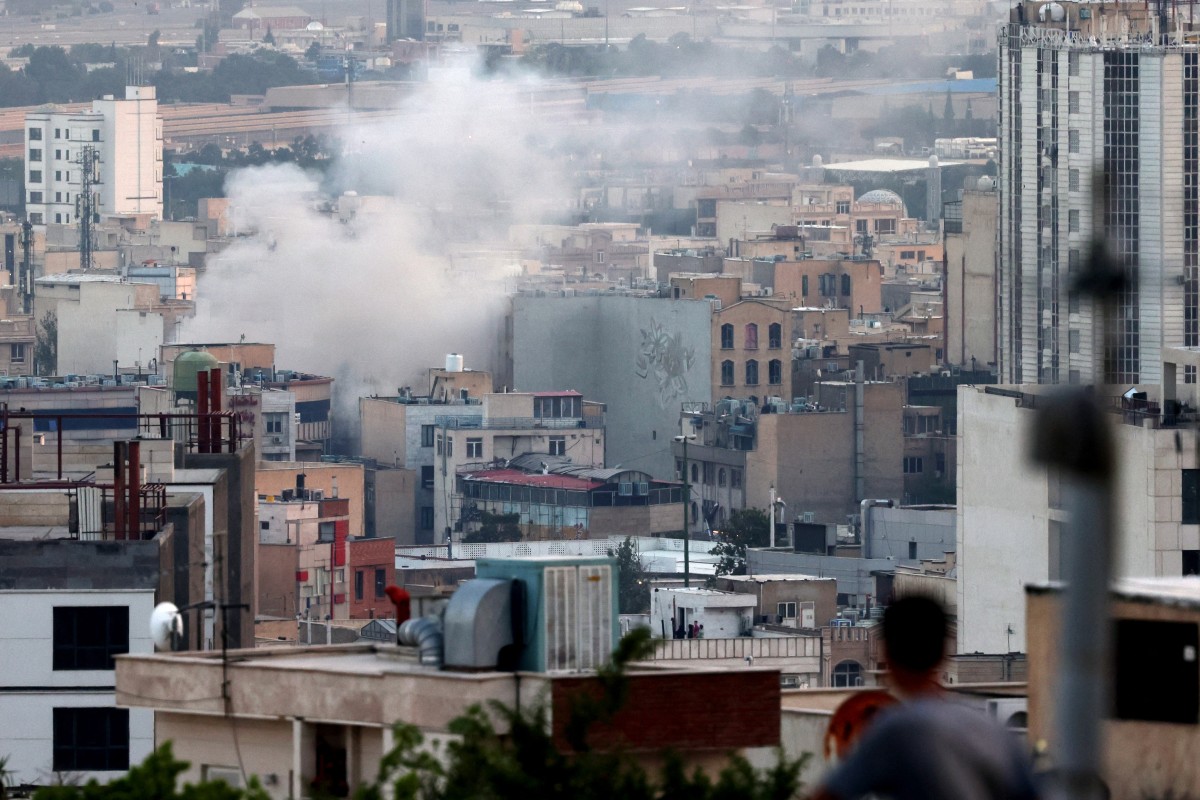Doha, Qatar — As Iran and Israel trade strikes and the US weighs joining in, wealthy Gulf states on the conflict’s doorstep are engaged in frantic diplomacy to halt the war — but solutions remain elusive.
A spillover of the conflict or the Iranian government’s collapse are both worrying outcomes for the energy-rich region, which hosts several major US military bases.
Peace and stability have been central to the rise of Gulf powers including Qatar, Saudi Arabia and the United Arab Emirates, who are pivoting their economies towards business and tourism.
Hoping to avert the crisis, Saudi Arabia, the world’s biggest oil exporter, has been talking to Iran and the United States since “day one”, Ali Shihabi, an analyst close to the royal court, told AFP.
“But it does not look promising that something will happen very soon,” he added.
Crown Prince Mohammed bin Salman and the UAE’s President Sheikh Mohamed bin Zayed Al Nahyan have both spoken to Iran’s President Masoud Pezeshkian in recent days.
The Emirati president also held a phone call on Wednesday with Russia’s President Vladimir Putin, an ally of Iran, who offered to mediate in the conflict.
Israel’s launching of the war scuppered Oman-brokered talks between Tehran and Washington that were supported by Gulf nations, who have been pursuing a détente with their giant neighbor after years of strained ties.
‘Reckless and miscalculated’ –
On Tuesday, US President Donald Trump demanded Iran’s “unconditional surrender” and warned it could easily assassinate its supreme leader, fueling fears of American intervention.
Hours later, the UAE’s Foreign Minister Sheikh Abdullah bin Zayed Al Nahyan said the Gulf country’s president had “conducted intensive diplomatic calls… to de-escalate tensions and prevent the conflict from spreading”.
Sheikh Abdullah warned against “reckless and miscalculated actions that could extend beyond the borders of the two countries”, in a strongly worded statement published by the official WAM news agency.
Trump had initially urged Iran to come to the negotiating table, but an official briefed on talks said Tehran told Qatar and Oman that it “will not negotiate while under attack”.
Oman, Iran’s traditional intermediary, said it was engaged in diplomatic efforts as the daily strikes continue.
Meanwhile Qatar, a key mediator in the Israel-Hamas war and a negotiator with Iran in the past, has also been “engaging daily” with the US, its foreign ministry spokesperson said on Tuesday.
Former Qatari Prime Minister Hamad bin Jassim Al Thani warned on X that “it is not in the interest of the Gulf states to see Iran… collapse”, adding that they would be “the first to be harmed” by the war’s repercussions.
‘Almost no influence’ –
An Arab diplomat told AFP: “Everyone in the Gulf is going to say we are better off making sure we have a deal with Iran, a diplomatic solution with Iran.”
Shihabi, the Saudi analyst, echoed the sentiment, saying the best outcome was “obviously an agreement between Iran and (the) US”.
Diplomatic intervention by Saudi Arabia, once a fierce critic of Iran, comes two years after they restored ties. The UAE, which recognised Israel in 2020, has also patched up relations with Tehran since 2022.
“Whereas the Saudis may have once called for ‘cutting off the head of the snake’, their approach toward Iran has shifted dramatically,” said Hasan Alhasan, a senior fellow for Middle East policy at the International Institute for Strategic Studies.
However, “the Arab Gulf states have almost no ability to shape Israel’s or Iran’s behaviour or influence the outcome of this war,” he told AFP.
“It is difficult to see how Israel’s military campaign against Iran, whose objectives seem to have quickly metastasised from eliminating Iran’s nuclear and missiles programmes to overthrowing the regime, ends well for Iran’s Arab Gulf neighbours,” Alhasan added.








